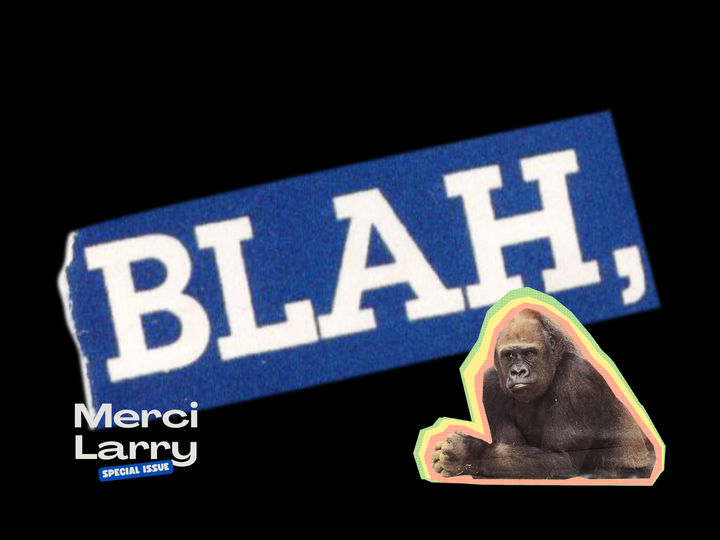A reflection on growth, management, intrapreneurship and the quiet confidence that comes with time.
On the plane taking me back to Lille after my final interview with Pictarine's Comex, I remember saying to myself: "I forgot to ask about their ad budget. For sure, it won't work."
That day, I woke up at 5AM to catch the plane to Toulouse. The deal was simple: pass the technical assessment in the morning, and if it goes well, stay for lunch and the final interview. At lunch, exhaustion was setting in hard, but I was also buzzing with excitement. I already knew Pictarine was a good fit. I liked the team. I liked Max, the co-founder sitting across from me. I liked the person from Marketing who was asking me questions between bites.
What I didn't like was the Chinese food they'd ordered. 😂
I'm not a fan of Asian cuisine, but there was no way I was mentioning that! I needed this job. So I smiled and forced down three Chinese raviolis, hoping nobody noticed I was barely eating.
On the plane home, the panic set in. How did I forget to ask about the ad budget? That's literally the most important question for a User Acquisition Manager role. The truth was more complicated than just forgetting. I was afraid of the answer. Throughout my job search, I'd been deliberately avoiding positions where the ad spend was too large. Budgets over $1M made me nervous. I didn't think I could handle that much responsibility. I didn't think I was that person.
Well, it's been a Yes. And I've lived happily since then.
Five years later, I manage an 8-figure budget. Here's what I learned.
Employee #25. Now we're +100 and counting
Scaling is strange. Every new phase feels like entering a new company like a hybrid world where you have the comfort of knowing how things work while simultaneously understanding that they can't continue to work that way.
Each phase rewards different profiles. The improvisers thrive early on. The organizers thrive later. I think the trick is learning to shift from one to the other before the company outgrows you.
When I joined in November 2020, Pictarine was small enough that everyone knew everyone. Communication happened naturally. Decisions were fast. If you needed to know something, you just asked. If something broke, you fixed it.
Then we grew.
Around 50 people, the casual hallway conversations stopped working. You couldn't just ask around anymore, you needed documentation, processes, actual meetings. The scrappy solutions that got us to 50 people started cracking under the weight of 75.
At 75 people, what worked at 50 became completely unsustainable. New hires didn't understand the context we all took for granted. Projects that used to take a quick Slack conversation now needed project briefs and stakeholder alignment.
Every threshold brought a small identity crisis. We'd built something that worked, and now we had to consciously break it to build something new. It's uncomfortable. It's also necessary.
But here's what made it worth it: watching the impact. Pictarine's mission in the US market has grown beyond what any of us imagined back when I was employee #25. Seeing the company's influence expand, seeing people build careers here, seeing the product reach more customers.
That's powerful. That pride of belonging to something that scales and matters? That never gets old.
Owning the ad spend and the responsibility that comes with it
It was February 2021. I'd been at Pictarine for less than three months.
February is a huge month for us: Valentine's Day, people ordering photo gifts, our busiest season. I was managing the paid acquisition budget, feeling the pressure to perform, to prove I deserved to be here.
Then a massive storm hit one of our biggest states. I didn't see the news. I didn't adjust our ad spend. We kept pouring money into acquiring customers in an area where people physically couldn't pick up their orders.
When I realized what happened, I felt sick. This wasn't a small mistake! This was real money, our money, gone because I hadn't been paying attention. In one of our busiest months. In my first few months on the job.
Here's what I learned: in order to learn things, you need to invest. The hard part is putting a number on the learning you're chasing. That storm cost us money, yes. But it taught me that managing a large ad budget isn't just about bids and targeting. It's about staying connected to everything that affects your customers. Weather. News. Politics. Events you can't control.
I also learned this: even when you're ultra-connected to the news, you don't own the market. External factors will make you lose money sometimes. The question is whether you're learning from it.
There were other times I lost money too. Sometimes I was too aggressive in my bidding strategies, targeting low-quality users that hurt profitability. Some experiments just failed. That's part of it. Over time, I learned to evaluate: what's the cost of this lesson? What's it worth to know the answer to this question?
When you manage eight figures, you start realizing you never truly control anything actually, not much the way you do at $1M spend for instance. You only steer probabilities, maybe a bit better.
We're still profitable, by the way. 😅
The outsider position is the best position you can be at
I don't want Pictarine to become the leader of photo printing in the US market.
That might sound strange, but hear me out. When you're the outsider, when you're the challenger trying to take market share from established players, that's precisely where the magic happens. And by magic, I mean all the tricks and all the hacks you can come up with in terms of growth marketing.
Oh dear, we did things that were... well, risky because when you’re the underdog, you ask the questions no one else is asking. You don’t have a brand to protect, only one to build.
Here's one I'm particularly proud of: we used competitor logos on our landing pages.
Not to confuse customers. Not to pretend we were them. But to measure funnel activation and understand the impact of brand recognition. We had intuition that big brand names affected conversion rates, but no data. So we tested it. No one noticed. But we learned something invaluable about how brand perception influences user behavior in photo printing.
That's the kind of test you can run when you're the scrappy underdog. When you're the market leader, you can't take those risks. You have too much to lose. Your brand is too valuable to mess with. You play defense.
But when you're #2 or #3? You play offense. You find angles others won't explore. You test things that feel slightly uncomfortable. You gauge the risk you're taking based on the learning you're chasing.
In the end, that outsider energy gives the permission to test what others wouldn’t and it's the same mindset that made intrapreneurship possible later on.
The team of hackers
Not long ago, we had an interesting discussion with our Product Design team about an A/B test we wanted to run. The debate centered on the dark pattern it created from a user perception standpoint.
Without getting into details, I realized something: they see us as hackers. People who are okay with dark patterns for the sake of business.
And you know what? That's partly true. We are a team of hackers.
But let me be clear about what that means. Being a hacker in growth marketing doesn't mean being unethical. It means being creative problem-solvers who test boundaries but within ethical bounds. It means asking "what if?" when others assume something can't be done.
Yes, we test aggressive tactics. Yes, we push boundaries. But there are lines we don't cross. We don't deceive users. We don't break their trust. We don't sacrifice long-term brand health for short-term gains.
The dark pattern debate? We talked it through. We evaluated whether it truly served both the business and the user. That's the hacker's code: be bold, be creative, but be thoughtful about where you draw the line.
Acting in Pictarine's best interest
It's inspired from No rules rules, the Netflix book as I like to name it. How much should we spend on that? Should I open a position even if the current team still has room? Should I share my honest feedback? Should I say to my manager who is also the CMO and co-founder that I do not agree with him on this and that? That's one of the guideline I use on a daily basis: by doing this, do I act in Pictarine's best interest? It helps put your ego aside, take a step back and then, to take better decisions.
Becoming a manager: learning to manage humans (starting with yourself)
On my first job, I was promoted to manager after one year without even knowing what it meant or what it takes. At my second job, same thing I managed a team of six direct reports split between Montreal and Bordeaux.
I thought I was doing fine. I was organized. I documented everything. I set clear expectations. I got results.
Then I joined Pictarine, and after one year, I became a manager again. But this time, something was different: I received training.
That fundamentally changed everything. Honestly, yes. Everything.
For the first time, I had access to reference books like The Making of a Manager by Julie Zhuo and No Rules Rules by Netflix co-founder Reed Hastings. For the first time, I attended internal training about management. Most importantly, for the first time, I had the opportunity to share my journey with other managers, something I'd never done before.
Guillaume, our CEO, always says:
First, know yourself. Then, become the best version of yourself.
I don't think you can be good at managing people if you don't know yourself. Where does your magic happen? Where do you gain or lose energy? What makes you feel motivated? How comfortable are you with uncertainty? How do you actually feel right now, not how you think you should feel?
The training gave me permission to explore these questions. It gave me frameworks to understand my own patterns. And once I understood myself better, I could finally understand how to help others become their best versions too.
Before Pictarine, I was told my management style was Angela Merkel style. Straightforward. Documentation-heavy. A bit hard sometimes. I told people exactly how to do things because I genuinely thought that was helping them.
As a long-time Patagonia fan, I'd already heard of Yvon Chouinard's book Let My People Go Surfing, but it didn't resonate with me until I met colleagues at Oncrawl who embodied that philosophy. I don't know if it was because their HQ was near the ocean, but something clicked. Pictarine later allowed me to apply that philosophy.
I realized: you can be good at managing people without telling them how to do things.
You can set the direction, provide context, share your expectations and then trust them to find their own path. You can be straightforward about what matters without being prescriptive about how to get there.
That shift changed how my team worked. It changed how I worked. It changed what I spent my time on.
Doing. Building.
Here's the trap: that thing that will only take you five minutes to finish.
Don't do it. Don't.
If you keep being hands-on with every easy task that crosses your desk, you won't be good at managing up or building for the future. You'll lose sight of your company's strategic topics because you're too busy doing the small stuff you're already good at.
When you're promoted to a manager role, you're expected to operate at a whole new level, not to embrace a hybrid role between doing and managing. It doesn't mean you stop being hands-on. It means you carefully choose which topics deserve your hands-on involvement.
This was hard for me. I like doing things. I like the immediate satisfaction of finishing a task. I'm good at execution.
But if I'm executing on small tasks all day, who's thinking about where the team should be in six months? Who's managing up to ensure we get the resources we need? Who's building the systems and processes that help the team over-perform?
It's about finding the best balance between achieving your company's ambitions and helping your team over-perform. And that balance requires letting go of the five-minute tasks.
Titles and what you are really doing
This is a hot topic for me. Really.
For the last four years, I've held the title of Growth Marketing Manager. In some companies, that means being 100% hands-on. In others, it means being a people manager. In others still, it means something completely different.
That's what frustrates me about our industry: we don't have standards for job titles.
At Pictarine, we have a leveling framework that defines what each title actually means in terms of scope, impact, and leadership expectations. My title means I'm a manager but these last four years haven't been a steady curve.
First, I owned user acquisition, both organic and paid.
Then I was asked to handle content production on top of that. Leah joined the Growth team and take this on. I was struck by how much content redaction was a passion for her. I particularly remember asking her to work asynchronously on a Google Docs draft for an upcoming Apple App Store featuring. I was amazed at how fast she was writing, the ideas flowing, all the editorial creativity concepts she brought. It made me realize: trusting someone who genuinely loves the work transforms what's possible.
I also hired Marie, who started as a Data Analyst and is now Engineering Manager of Data, leading a team of five. Watching her grow from individual contributor to manager has been one of the highlights of my time here.
Last year, I was asked to own Retention as well. I recently hired Manon, who is the first person to handle our CRM strategy all by herself. She's also the first Senior IC I hired in my team, and so far, she's challenged me the most in how I manage both through her expectations and in teaching me how to manage when you're not the one with the specific skillset. That's been humbling and valuable.
Recently, during an interview, I watched Manon and Nesser lead the questioning. They challenged the findings, dug deeper when something didn't add up, asked exactly the questions I would have asked. Better, actually. I sat back and said almost nothing because they were already doing it.
I gave them feedback right after. That moment confirmed something important I'd chosen the right people to push the team to its best version. Not people who needed me to tell them what to think, but people who could think alongside me, sometimes ahead of me.
Crazy thing I would have thought at the beginning of this year, I even hired someone to design our ads assets. Someone whom job will be to design stop-scrolling ads and clicky email banners. I barely know how to use Figma. There are roles that put you in your zone of discomfort and that doesn't mean you won't be able to be a good manager for that person. It's different and your role is to adapt, push yourself forward.
To date, the only thing I didn't hire for and wish I had? Someone to manage our tracking and attribution full-time. Life.
The scope kept expanding. The team kept growing. The title stayed the same. That's the reality of scaling companies your role evolves faster than your title does. What matters is whether you're clear internally about what the role actually requires.
At the end of the day, your title is a lagging indicator. Your real job is the delta between what the company needs and what exists. If you fill that gap well enough for long enough, the title catches up or it doesn’t, and that’s fine.
The team who spend millions
For someone who first specialized in SEO, it's very funny and unexpected to be in that position. I even finally accepted clicking on search ads for my personal searches. Unbelievable!
There's something that happens when you're on the team that spends money, a shift in how people perceive you internally. You start hearing things like the growth team will launch a campaign and we'll make money with this new feature.
Well. Not exactly.
It's a strange dynamic. Because we control the spend, there's an assumption that we control the revenue. That if we just spend more, or spend smarter, or launch the right campaign, the money will flow in. The pressure is subtle but constant: you're the team with the budget, so you're the team responsible for growth.
But attribution gets messier over the years. Incrementality is hard to measure. Not every dollar spent equals a dollar earned. Sometimes the best campaigns support long-term brand building that won't show up in this quarter's numbers. Sometimes cutting spend teaches you more than increasing it.
That's why testing radical hypotheses matters; it helps evangelise the reality of how growth actually works, beyond the simple narrative of spend money, make money.
Learning to say "I think" instead of "I know"
Max taught me something that fundamentally changed how I approach uncertainty: give yourself permission to dig into the "why," and take the time to actually do it.
Sometimes you're doing something for the first time and you have no idea what the outcome will be. That's normal. What matters is working with confidence indices, quantifying your beliefs and confronting them with your team to see if you're aligned. For example: "I'm 80% confident that the emails we collected will convert at 5%."
It's a difficult exercise because you have to do it spontaneously, in the moment. You have to commit to a number. You have to accept being wrong. You have to discuss when your confidence indices don't match someone else's. And then you have to launch action plans that will confirm or invalidate your hypothesis.
It's uncomfortable sometimes but it forces clarity. It separates gut feeling from wishful thinking. And over time, you get better at calibrating your confidence to reality.
Learning entrepreneurship from the inside
There's no MBA, no course, no book that can teach you what you learn by being managed by the co-founder itself. It's not about theory but about watching how decisions actually get made when the stakes are real.
When I face difficult decisions or go through challenges, I ask for Max's advice. He never just gave me answers. Instead, he showed me how he thought about problems from a founder's perspective. The trade-offs. The long-term thinking. The bets you have to make without perfect information. How to weigh risk against potential learning. How to know when to push and when to pull back.
That kind of mentorship shaped how I approach everything.
When I told him I was curious about M&A and family offices (interests that had nothing to do with my day-to-day role) he didn't dismiss it. He walked me through how he evaluates investments as an angel investor. The frameworks he uses. The questions he asks. The red flags he watches for. He opened up his thinking in a way that turned abstract curiosity into practical knowledge.
When an opportunity came up to explore a potential partnership with another startup, he let me lead those conversations. He trusted me to represent Pictarine, to negotiate, to learn by doing. Do you see the privilege here? The freedom to explore what interests you, to stretch beyond your job description, to actually experience what it's like to operate at that level.
I've always said that Pictarine is the best university you can go to learn about entrepreneurship and how startups work. But it's not just about the company, it's more about the people who build it being willing to share how they think, how they decide and how they navigate uncertainty.
Picta for Kids is the clearest example of this. The concept is simple: a photo printing experience designed exclusively for children, where kids could browse their photos, personalize them with stickers, and order prints autonomously.
Max supported it, championed it, let me run with it. Building momentum, testing assumptions, learning what it takes to go from idea to almost-real; that's intrapreneurship. And the fact that Pictarine gave me the space to do that, that's been one of the proudest parts of my journey here.
Not just the growth marketing wins, but the entrepreneurial education that comes from working directly with people who are building something from scratch.
That inside view of decision-making is the reason I’m now curious about investments because it forces you to think in decades instead of quarters.
What five years actually means
Time goes fast. But transformation takes time.
I'm still employee #25, though the company has grown far beyond what it was when I got that number. I've gone from IC to manager. I carry institutional knowledge that new hires don't have. I understand the context behind decisions that seem arbitrary from the outside.
But here's what hasn't changed: the hunger. The willingness to take risks. The hacker mentality refined, not abandoned.
I still don't want Pictarine to be #1 in the US market. Not yet, anyway. Because the moment we become the leader, we lose the freedom to be as bold, as experimental, as scrappy as we are now. We'd have to play defense instead of offense.
But I do think about where we're headed. When I talk to potential hires, I describe Pictarine as the best university you can go to. I'm really proud of everything we're building. I believe that one day, a lot of people will want to join this adventure because word of mouth will have spread about what we've created here.
For myself? I want to keep developing the team. Give them the tools to meet expectations and chase big wins.
What I learned these five years isn't just about growth marketing tactics or management frameworks. It's about how you grow into roles that scare you. How you learn to trust yourself with bigger responsibilities. How you build teams that challenge you. How you stay true to your values while pushing boundaries.
On that plane five years ago, I was terrified I wasn't good enough. I was convinced I couldn't handle large budgets.
Turns out, I became the person who owns the budget. Who decides how to spend it. Who takes the risk of cutting channels to see what happens. Who builds the team that spends millions.
If I could tell myself on that plane one thing, it would be this: the ad budget is bigger than you think. And so are you.
Also: next time, ask for different food.




Comments ()